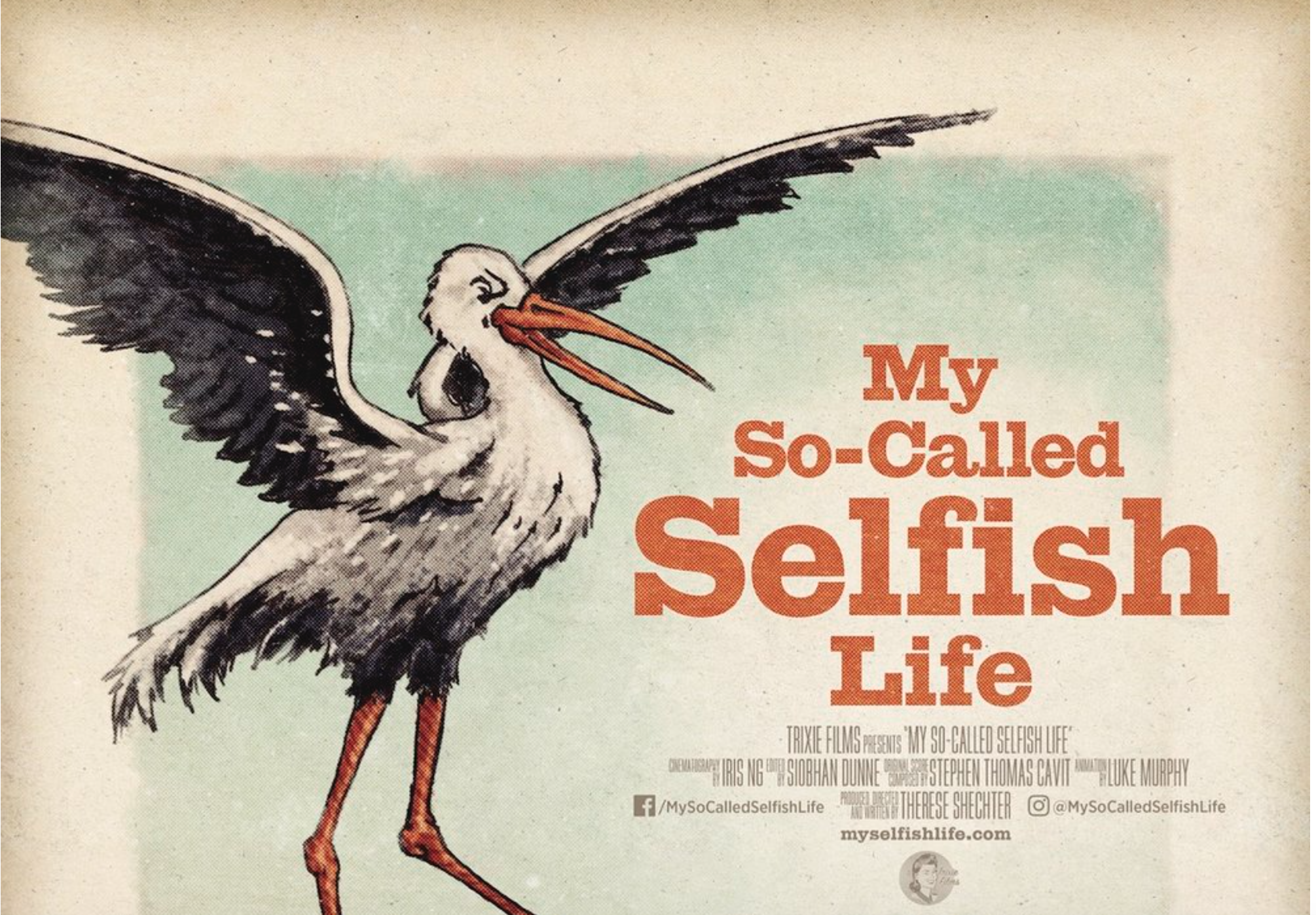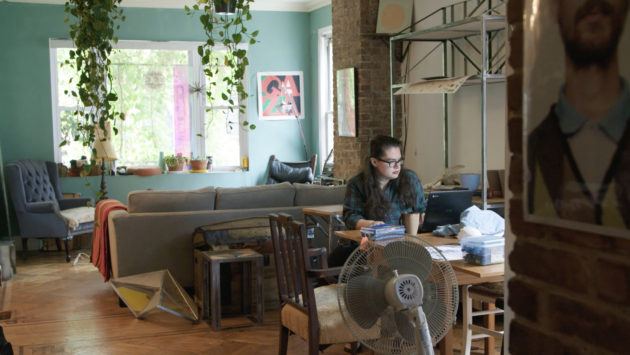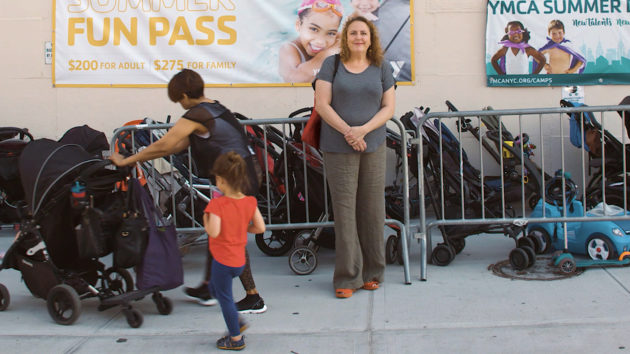
Celebrating the Choice to be Childfree, Breaking a Taboo
Not everybody wants to be a parent. Ever. As we face down a future without Roe, that reality is especially important to understand. Jewish feminist filmmaker Therese Shechter’s latest documentary, My So-Called Selfish Life, about those who make the choice not to become a mother, is streaming until May 23. The film tackles a subject that is particularly taboo in Jewish communities, where procreation is an imperative and seldom questioned. The moral panic surrounding those who opt out of parenthood is more amplified now that the demise of Roe v. Wade is imminent, and in this moment, it’s more important than ever to annihilate the notion that motherhood is the most defining aspect of a woman’s destiny.
In this interview, Shechter and Chanel Dubofsky, a Lilith contributor who appears in the film, talk to each other about identity, regrets, living the life you choose, cronehood, and more.
Chanel: How did we first meet?
Therese: I read an article you had written about Israeli feminist Orna Donath’s work on Maternal Regret and how incendiary the topic was. I’d never heard of Orna’s work before, but I thought it was fascinating. (Side note: I eventually traveled to Tel Aviv to interview Orna for the film, and she is really the coolest.) I appreciated your take on the issues around choosing not to have children, because back in 2016, there weren’t a lot of people reporting on it. You were shouting it! In the Forward!
Chanel: I was so angry. I felt like I was writing into a void, no one was talking about this, and it felt like it was my entire life. I had spent so much time bumping around in Jewish communities where everyone was doing the same thing and my friends were all getting married and having kids and I was so tired of being the only one who wasn’t going to do that because I didn’t want to. It was so heartening and restorative to hear from you.
Therese: I’d been following your work on reproductive issues for a while. I emailed you a fan letter and asked if we could meet and talk. I’d been doing a lot of research and I wanted to see if my thinking was on the right track. We had this very long and very awesome lunch and I went down a long list of questions.

Chanel: Why did you ask me to be in the film?
Therese: You were so smart and a kindred spirit. You had important things to say–and you were also really funny, which is something I always look for in film subjects. I delve into a lot of thorny concepts in my films, and it really helps to have these ideas leavened with humor. When I watch the finished film, I still laugh out loud at some of your spot-on commentary delivered as one-liners, like when you said our identities were supposed to be built on self-sacrifice, and if we thwarted that we were, like, ‘garbage cans.’ It loses something in print. Your delivery was spot-on.
Chanel: I tend to approach subjects that are difficult or scary with humor. I don’t know if that’s because of Judaism or being a Sagittarius or what.
Therese: Jewish Sagittarius – Hello! No wonder you’re a kindred spirit.
Chanel: Are you also a Sagittarius?! How are we discovering this now? We’ve spent DAYS together!
Therese: Actually, I find it incredibly annoying when people say things like ‘That’s so like a Sagittarius!’ so it probably hasn’t come up! But I still enjoy the idea of both of us being the same sign.
How did you feel seeing yourself on screen?
Chanel: When I was sitting in the theater for the film’s premiere I got so nervous. When I was on the screen, it was like, oh, you look cute! I was so worried about how I’d physically appear, but then I snapped out of it and thought, pay attention to what is coming out of your mouth. What kinds of topics were you looking for in making the film?
Therese: I was interested in why women got so much grief over not wanting children. Like, why were our various friends and relatives asking us about it at every holiday dinner? Were they jerks, or was there something bigger going on?
I wanted to understand where this idea came from – that motherhood was a biological imperative, and that every woman wanted and needed children. Having a child is a profound thing and yet we treat it as totally benign: like “go ahead and have them, don’t think about it, just do it.”
Chanel: All the stuff about the biological clock and every person with a uterus wanting a child used to really worry me—like was it going to just happen and I would let it happen? It felt like everyone was surrendering, regardless of what they wanted to happen.
Therese: This intense feeling of inevitability was something I felt through my 20s and 30s. Even though I knew I didn’t want children, I still assumed I’d have them. So I had to get everything done before that happened–travel, work, personal experiences–because once I got married and had children that part of my life would be over. I used to have nightmares about it.
Chanel: Alice Munro has this great quote from the “Moons of Jupiter” that I think about often: “They were all in their early 30s. An age at which it is sometimes hard to admit that what you are living is your life.”
Therese: Now that I’m a crone, I’m unapologetic about my choices. But looking back at my 20s and 30s, I can see how confused I was. Is being childfree easier now that you are approaching crone-hood? Was it different at 29?
Chanel: It’s SO MUCH easier now. (I’m 43.) I think it has to do with having written and talked about being childfree a lot, maybe people know not to ask about it, and also, I spend much less time with people who are obsessed with being normative and surrounding themselves with normative people.
I still find myself disappointed when those I thought might be childfree end up having kids. It always feels like a loss, because it’s hard to make the path yourself. That being said, my life is such a luxury – I get to read and write and live in New York City and whenever I think about that, the decision I made to be childfree just gets reinforced as empirically correct.
Therese: Did being interviewed bring up stuff that you hadn’t thought about before?
Chanel: I was talking and reporting about being childfree, but it was about pushing back against the pronatalism. I didn’t feel like people were hearing me say that being childfree was good for me, for my mental health, for the life I want, and that people should be able to and allowed to live the life they want.
When I was in my late 20s, I thought I wanted to be a rabbi. Talking with you for the film reminded me of how confined I felt by that decision. If I followed through, I was going to have to get married and have kids, because I didn’t know any rabbis who didn’t have those things or didn’t want them.
Therese: Wait, you wanted to be a rabbi?
Chanel: Oh yeah, for a while. My plan fell apart when I realized the rabbinate was more of a way to avoid what I really wanted, which was to write and read forever, than about being a person who wanted to be in service to the Jewish community. It’s funny, I guess most people don’t know I wanted to be a rabbi, but when they find out, they’re flabbergasted.
Therese: I made this film about not having kids and I talk about my childfree-ness a lot. But being childfree is nowhere near the most interesting thing about me. And it’s not the most interesting thing about you either.
Chanel: But if you’re a woman who doesn’t want kids, it IS kind of the most interesting thing about you! It’s still seen as so out of sorts and even nefarious, so we’re reduced to it, and we spend all this time talking about why we don’t want kids so people will see us as human beings. The pending reversal of Roe makes it clear that it’s not acceptable for people who can get pregnant to reject the option to stay that way – it’s seen as so morally fundamental to who women have to be that it literally needs to be legislated.
Therese: I find I am constantly asked about why I don’t have kids, as if I’m going to reveal some deep trauma that explains my waywardness. But guess what? I don’t have kids because I don’t want kids. “I don’t want kids” is a complete concept. In making this film, my editor Siobhan Dunne and I decided that we would not go out of our way to offer up explanations from our subjects about why they chose this path.

Chanel: Did you notice that there are a lot of Jewessess in the film? What is that about?
Therese: There are 5 or 6, including me and my mother. So yeah, there are a disproportionate number of Jewish women in the film, but not by design. I was committed to having a diverse group of subjects by many metrics: women of color, Black women, queer folk (and at this point I do have to acknowledge that you don’t need a uterus to be a woman and not all women have uteruses), a college student, several women over 75, and both mothers and non-mothers.
Maybe Jews are just more outspoken and questioning… But also keep in mind these aren’t Orthodox Jews we’re talking about. That’s not a community that would reveal such things, and it’s the same with folks from some other ethnic groups, who spoke candidly off the record but wouldn’t agree to be on camera. For them, it was the most massive taboo, and many were basically lying to their families, telling them that they were ‘trying’ for kids.
Chanel: As Jews, we are proud of the fact that we interrogate and learn and are encouraged to do so, but I think that stops with being childfree, at least in public conversations. It’s really not negotiable, we aren’t going to get permission from Jewish texts or communal leaders or often even our peers to not have children. So I wonder if the film actually brought out Jewish women who were looking to talk about it in a space where their entire voice was welcome.
Therese: In a way I think everyone in the film feels that need. To have the things they wish for in life be welcomed with love and joy.
Chanel: Let’s talk about regret. You know, the thing that we’re inevitably going to feel because we decided not to have kids.
Therese: Whenever you make a choice, there’s always a chance you’ll wonder about the choice you didn’t make–the unknown path. In my case, it’s everything from ordering the french toast instead of the scrambled eggs, to not getting with a cute Australian that I met while backpacking across Europe at 19. I feel like as long as I made the best choice for myself at that time, it’s all I can really ask for. In the film you say you’d rather regret not having children than regret having them, which is very wise.
Chanel: I regret not taking myself seriously as a writer for so long, and listening to people when they told me it was impractical. I should always have listened to my 11-year-old self, who wanted to live in New York City with a cat and write a novel. I gave her a lot of crap, but she knew.
Therese: That reminds me of my 13-year-old self. She also knew but then she forgot. I wrote in my high school yearbook that my ambition was to be like my role model Rhoda Morgenstern: ‘a free and easy artist living in New York.’ And lo and behold, here I am at 60, in New York, doing creative work, and really happy with how my life turned out.



